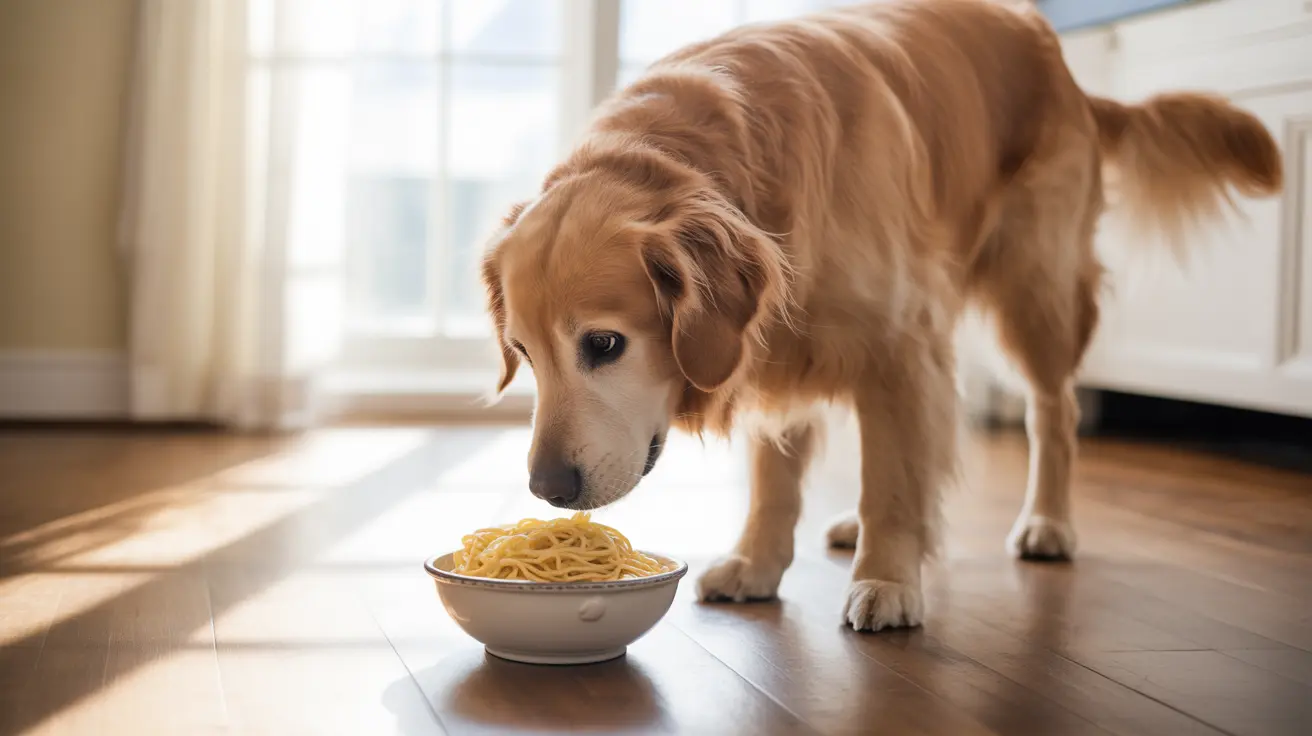If you've ever wondered whether it's safe to share your spaghetti dinner with your furry friend, you're not alone. While dogs can eat pasta in moderation, there are important guidelines and considerations to keep in mind to ensure your pet's safety and health.
As a responsible pet owner, understanding what foods are safe for your dog is crucial. Let's explore everything you need to know about feeding pasta to your canine companion, including potential risks, proper serving methods, and healthier alternatives.
The Basic Rules of Feeding Pasta to Dogs
Plain, cooked pasta is generally safe for dogs to consume in small amounts. However, it should never become a regular part of their diet. Dogs are primarily carnivorous animals that thrive on protein-rich foods, making pasta more of an occasional treat than a dietary staple.
When preparing pasta for your dog, always ensure it's:
- Completely cooked
- Plain without any sauces or seasonings
- Served in small portions
- Cooled to room temperature
Can Dogs Eat Spaghetti and Other Pasta Types?
While dogs can eat spaghetti when it's plain and cooked, it's important to understand that not all pasta dishes are created equal. The iconic "Lady and the Tramp" scene might be romantic, but sharing your marinara-covered spaghetti with your dog isn't advisable.
Different pasta shapes like macaroni or penne are equally safe when properly prepared, but the key is keeping it simple and sauce-free. Remember that any pasta given to your dog should be an occasional treat, not a regular meal replacement.
Can Dogs Eat Noodles Safely?
When it comes to noodles, the same rules apply as with regular pasta. Plain, cooked noodles can be safe for dogs in moderation. However, specialty noodles like ramen or those with added seasonings should be avoided entirely, as they often contain ingredients that could be harmful to your pet.
The Truth About Dogs and Macaroni
Macaroni is another pasta variety that dogs can safely consume when prepared properly. However, popular dishes like macaroni and cheese should never be shared with your pet due to their high fat content and dairy ingredients, which many dogs have difficulty digesting.
Health Considerations and Risks
Before feeding your dog any type of pasta or noodles, consider these important health factors:
- Carbohydrate content can contribute to weight gain
- Some dogs may have wheat or grain allergies
- Pasta offers minimal nutritional value for dogs
- Large portions can cause digestive issues
- Dogs with diabetes should avoid pasta completely
Healthier Alternatives to Pasta
Instead of pasta, consider these nutritious alternatives for treating your dog:
- Small pieces of lean, cooked chicken
- Fresh vegetables like carrots or green beans
- Commercial dog treats formulated for optimal nutrition
- Sweet potato chunks (in moderation)
- Frozen plain yogurt treats
Frequently Asked Questions
Can dogs eat pasta safely, and what are the risks if fed regularly?
Dogs can safely eat plain, cooked pasta occasionally. However, regular consumption can lead to weight gain, nutritional imbalances, and potential health issues due to its high carbohydrate content and limited nutritional value.
How much pasta is it safe for dogs to eat at one time, and what are the best portion sizes?
Portion sizes should be very small, typically no more than a few pieces of pasta. The exact amount depends on your dog's size, but pasta should never exceed 10% of their daily caloric intake.
Can dogs eat spaghetti sauce, or are there ingredients in it that are harmful to them?
Dogs should never eat spaghetti sauce. Common sauce ingredients like garlic, onions, and certain herbs can be toxic to dogs. Additionally, the high sodium content and acidic tomatoes can cause digestive issues.
Are there any healthier alternatives to pasta that dogs can eat as a treat?
Yes, better alternatives include lean meats, fresh vegetables, and commercially produced dog treats. These options provide more nutritional value and are specifically formulated for canine health.
How can I ensure my dog doesn't have an allergic reaction to pasta, and what signs should I look out for?
When introducing pasta for the first time, offer a tiny amount and watch for signs of allergic reactions such as itching, digestive upset, or skin problems. If any adverse reactions occur, discontinue feeding pasta immediately and consult your veterinarian.






